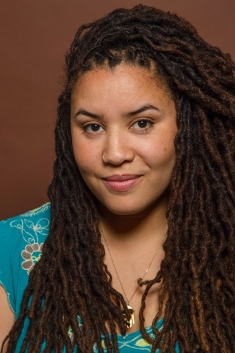Program Chair Brings New Vision to Africana Studies

Author, scholar, and researcher Christina Jackson’s work is rooted in community. This fall, she joined the faculty of Rutgers University–Camden, where she has begun cultivating new connections as part of her aspirations for the Africana Studies program.
Jackson serves dual roles as assistant professor of sociology in the Department of Sociology, Anthropology and Criminal Justice and chair of Africana studies, for which she has goals that are both localized and far-reaching.
“I want to welcome more community engagement opportunities and events so that we build a relationship with the Camden community,” Jackson said. “I also want to bring more global communities into Africana studies; I would love to get students traveling on more study-abroad courses.” She emphasized the importance of the financial pathways provided by the Chancellor’s Experiential Learning Fund, which helps students cover the costs of learning abroad or conducting research internationally.
Jackson’s passion for education started young. The daughter of a K-12 teacher in Philadelphia, Jackson recalled sitting in her mother’s college classes while she went back to finish her degree. Later, Jackson would begin to observe the socioeconomic divides within the city’s neighborhoods while attending Temple University. A paid internship studying sociologist and activist W.E.B. duBois would shape her career path.
Jackson earned her doctorate in sociology at the University of California, Santa Barbara, where she worked on environmental justice research surrounding development at the Hunters Point Naval Shipyard in San Francisco. A postdoc in Africana studies at Gettysburg College, followed by a teaching position at Stockton University, brought Jackson back to the East Coast.
While at Stockton, Jackson co-founded the Community Based Social Research Collaborative, an interdisciplinary collective of social scientists who participate in grant-funded work on topics such as maternal and child health. Out of this effort came a partnership with N.J. First Lady Tammy Murphy’s Nurture New Jersey campaign and the establishment of the Maternal and Infant Health Innovation Center in Trenton, with which Jackson continues to be involved.
The co-author of two books, Jackson is working on a forthcoming book project centered in Atlantic City. Dual City will, through the lens of one North Side neighborhood, shed more light on the two distinct classes that reside in the shore town. “It takes readers through what I call social, economic and environmental disasters,” Jackson said. “The goal is to learn from them and help prevent urban social classes from being as divided as they currently are.”
Long term, Jackson would like to incorporate more disciplines into the Africana studies program. “It doesn't need to just be social sciences and humanities,” she said. “I'm hoping to have more cross-listed classes as time goes on, so there's a lot of different courses available for the spring.”


